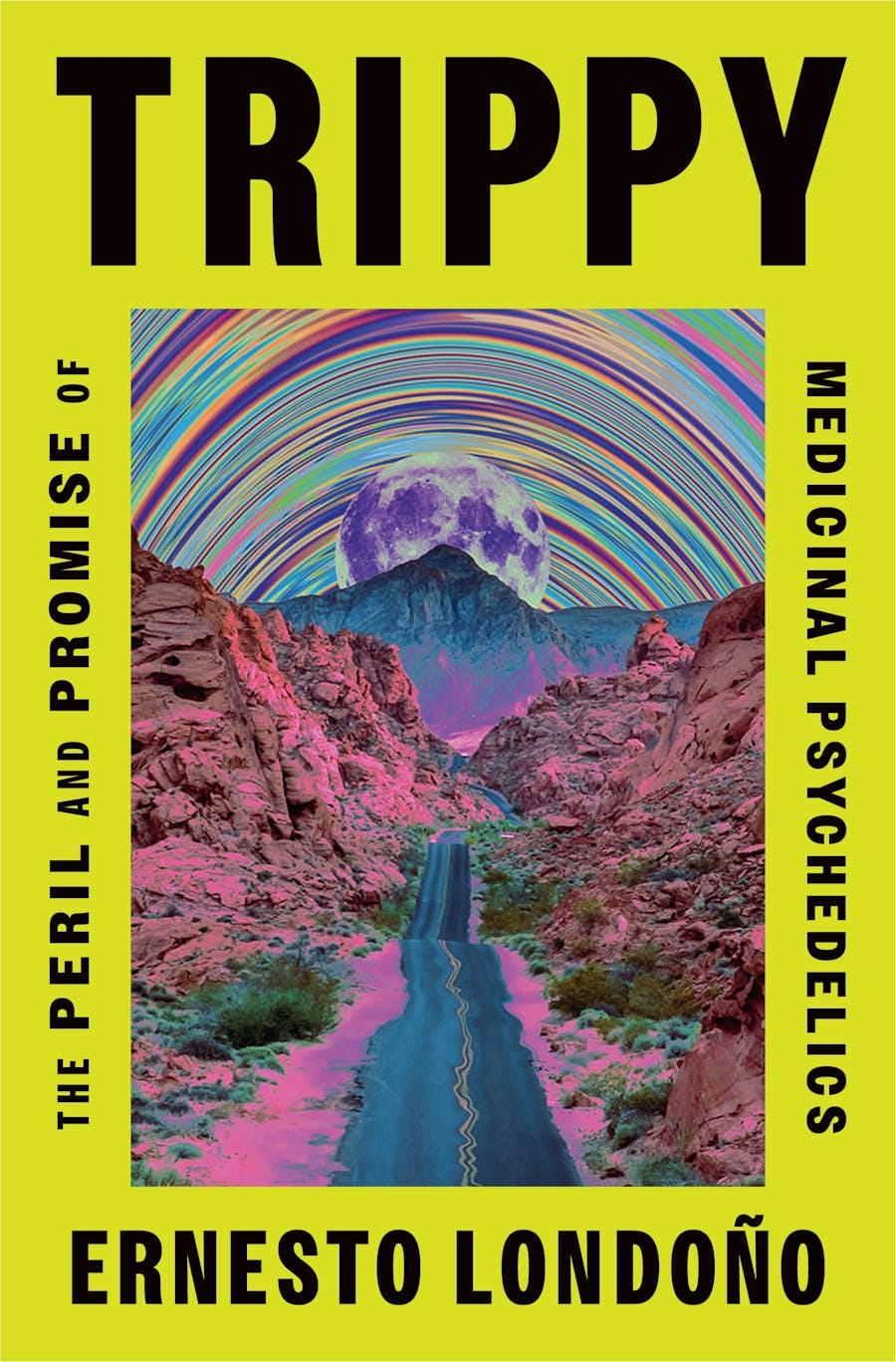Potentially Terrifying: Taking Hallucinogens, Someone Slacking "Hey"
Plus, the internet proves its value. Finally.
At least to start with, maybe listen to someone talk about tripping on psychedelics to treat depression instead of doing it yourself
As I say on this week’s show, we are not yet to a point where you can stop by Walgreen’s and pick up psilocybin and then try them at home to see if they can help a depression that nothing else has worked for. Can’t stop at 7-Eleven and grab a can of ayahuasca along with some Gatorade and a corn dog. Maybe one day, not yet. Because it’s just not far enough along.
Still, there is a lot of movement and a lot of excitement in research circles about the possibilities of drugs that have long been intended for recreationally tripping out. For now, tripping on these and other substances (toad venom!) often involves travel to a foreign location, the assistance of people without any or without a lot of licensure, and varying degrees of mysticism that can be hard to navigate.
Or you can just listen to our podcast and learn what it’s like that way because New York Times national correspondent Ernesto Londoño has had those experiences himself and will tell you all about it. For his new book, Trippy, Ernesto traveled deep into the Brazilian back country among other places to try out these substances and report on what the experience is like both while tripping and working with the people around it.
And yes, after his first ayahuasca treatment, his depression disappeared. The relief was complete. And no, it did not cure him forever. And yes, it did bring up deeply repressed traumatic memories as well as a new more capable perspective on dealing with them. But his experience doesn’t stop at ayahuasca, he explores MDMA, ketamine, and, yep, toad venom.
I mean, go try some of this stuff if you want to, if you can do so safely and legally, AND PLEASE BE CAREFUL, or you can just listen to the show.
A Kennedy who you might prefer to listen to
Eight-term congressman Patrick Kennedy has a new book, Profiles in Mental Health Courage. The title is a play on words a bit from his uncle’s book and if you don’t know that book or his uncle’s identity, please go look that up.
Patrick Kennedy’s book is made up of stories about people from all walks of life dealing with mental illness. In many ways, it’s what I do on my podcast and what people have been doing for a long time: framing the experience of mental illness within the context of a human narrative to make it more relatable, make people feel less alone, and provide more light and understanding.
He’s been making the talk show circuit:
“As a nation, the adults are letting the next generation down, because here we are having addiction-for-profit industries,” he said. “And it doesn’t just end with social media. Every other ad is from sports betting, and gambling is a major mental health problem. And it’s only going to increase because, like we learned with big tobacco, these companies that make money make money off of getting new subscribers, new people to smoke cigarettes, new people to smoke marijuana.”
The alarming and toxic phenomenon of Hey-Hanging
I didn’t know this was a thing. Well, I did because I’ve experienced it and it drove my anxiety up a wall but I didn’t know it had a name. And the name is Hey-Hanging.
Three letters. One syllable. It may seem like an innocuous enough message, but in digital workspaces such as Slack or Google Chat, few words or phrases are as anxiety-inducing as a simple “hey.”
And “hey” with no follow-up or with a heavy pause? That can be downright unnerving when it comes from a manager. (“Hey what? Am I about to be called into a conference room for layoffs?”) If you’ve never chatted with the person before, a “hey” out of the blue can leave you second-guessing yourself, too. (“What does this person from a random department want? Am I being pulled into something?”)
Forbes reports on several reasons why committing this act, or having it committed unto you, can be bad for your mental health. And, because Forbes, bad for your career.
If uncertainty is unacceptable to you, you will amplify your fear and end up at war with yourself, resisting and arguing with your situation, instead of living it. Accepting versus resisting uncertainty is a tall order, but it’s counterintuitive. The author, Eckhart Tolle said, “If uncertainty is unacceptable to you, it turns into fear. If it is perfectly acceptable, it turns into increased aliveness, alertness and creativity.”
I’m glad this video exists to the extent that now, I think, the internet has proven its value
Comedian Emily Fleming cleans her toys on Sleeping with Celebrities
And you can listen along. And fall asleep.
Yes, toys are delightful and fun and even exciting. But for our purposes, that might all get a little TOO exciting. We’re here to put you to sleep after all. That’s why Emily, co-host of Maximum Fun’s newish Free With Ads podcast, will go into detail on exactly how to clean the various action figures in her rather sizable collection. A lot of the toys are Power Rangers and she even managed to not lose their tiny plastic weapons. Playing? Yes. Fun. Not sleep inducing. Cleaning? Well, get ready to saw some logs.





